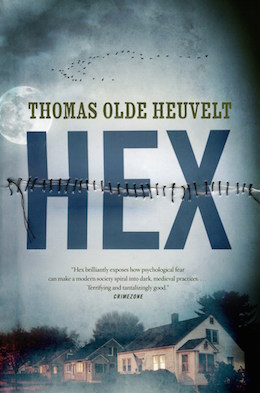So I wrote a book a few years ago and it became hugely successful in my home country of The Netherlands. And in half of Belgium. That’s because half of Belgium speaks Dutch.
The problem with being Dutch is that only about 23 million people in the world speak your language. There are more people in Shanghai than there are people who speak Dutch. Think about it. If you meet a random person at any given place in the world, chances are higher that they’re from a single city than that they share your mother tongue. Sounds pretty lonely, huh? And still, we’re the seventh happiest country in the world, according to the World Happiness Report. Maybe there’s a link.
But when you’re a writer and words are your weapons, you want to expand beyond such borders. When I was twelve I knew I was going to be a writer. My goal was world domination. Now, at thirty-two, the motivation has changed (slightly), but not the desire: I still want to touch the lives of as many readers as I can. Whether you’re Mexican, Bulgarian or Vietnamese, I want to make you smile. Or cry. Or feel scared shitless.
Then IT happened. My agents sold the English languages rights of the book that had become so successful in my home country to publishers on both sides of the Atlantic. “World domination!” this Dutch boy cheered. Since translation in popular American fiction is a relatively recent thing, it’s pretty rare for writers from such small language areas as mine to have a novel out in the US. I immediately realized I was facing a wholly new dilemma. The book had—quiver, Americans—a Dutch setting.
Now, on first glance, there seems nothing wrong with that. The utter Dutchness of the book, which is about a modern-day town haunted by a seventeenth-century witch, is one of its strengths, I think. I don’t mean “Dutchness” in the sense that the witch is smoking pot or is behind some Amsterdam red-framed window—I’m talking about the secular nature of Dutch small-town communities and the down-to-earthness of its people. If a sane person sees a seventeenth-century disfigured witch appear in a corner of the living room, he runs for his life. If a Dutch person sees a seventeenth-century disfigured witch appear in a corner of the living room, he hangs a dishcloth over her face, sits on the couch and reads the paper. And maybe sacrifices a peacock.
I love the fresh perspective that comes with reading fiction from different cultures. Being Dutch, 90% of the books I read come from abroad. Sometimes I even want to be taught about these cultures. The Kite Runner gave me a much more nuanced view about Afghanistan than Fox News. Murakami taught me more about Japanese customs than any sushi restaurant I’ll ever visit.
But there’s a limit to what I want to be taught. Some books I just want to read for the fun of it. The thrill. Or the scare. And I realized my novel, HEX, was such a book. My favorite comment from Dutch and Belgian readers is that it makes them sleep with the lights on. I have literally hundreds of those, and just imagine the silly grin on my face whenever I read through them. I could care less about what the story taught them about social values in communities or the depravity of mankind, as long as it gave them nightmares. Some literary critics will probably shoot me for this statement, but to them I say, come and get me.
To thoroughly scare readers, you have to create a perfect sense of familiarity in a story and then rip it to pieces as soon as they’re hooked. And here’s where the Dutch setting becomes problematic. If I’d read a horror story set in, say, rural Azerbeidzjan, I’d be worrying all the time about what the place actually looks like, what’s the norm for these people, what are they scared of and oh, by the way, how do you even pronounce their names? Bang! Familiarity gone, and a missed opportunity to make me scream at night. I imagined it would be the same for American readers when they read about a Dutch setting. I mean, how do you actually pronounce Olde Heuvelt?
So I decided to Americanize the book. Some people told me I was selling my soul, but hey, I am the writer, and selling one’s soul actually comes with the genre. For me, it was an exciting creative challenge. I had a book that I loved, I had characters that I loved, and here I had the opportunity to relive it all, without having to face the horrors of a sequel. Instead, I could create an enhanced version, a HEX 2.0 if you will, with all new rich and layered details, culturally specific legends and superstitions, and without ever losing touch with the Dutch elements of the original. Katherine Van Wyler, the original Dutch seventeenth-century witch, came to the new land on one of Peter Stuyvesant’s early ships. The rural town of Beek became the Dutch trapper’s colony of New Beeck, later renamed Black Spring. The Dutch characters became Americans, but with the down-to-earth quality of the Dutch. The dishcloth stayed. So did the peacock. And the public flogging of minors, a common and fun tradition we celebrate annually in many a small town in The Netherlands.
I can’t wait to find out if it worked. If American readers start telling me they had to leave the lights on, I’ll grin some more. That’s my world domination. And I won’t pay the electric bill.
This article originally appeared in the Tor/Forge newsletter. Join the mailing list here.
Read an excerpt from the English translation of HEX here on Tor.com
 Dutch novelist Thomas Olde Heuvelt is the author of five novels and many short stories. His work has appeared in many languages, including English, Chinese, Japanese, Italian and French. His critically acclaimed novel HEX, which became a bestseller in The Netherlands, will be published April 26th in the US by Tor and in the UK by Hodder & Stoughton. Warner Bros. is currently developing a TV series based on the book. Find him on Twitter @Thomas_Novelist.
Dutch novelist Thomas Olde Heuvelt is the author of five novels and many short stories. His work has appeared in many languages, including English, Chinese, Japanese, Italian and French. His critically acclaimed novel HEX, which became a bestseller in The Netherlands, will be published April 26th in the US by Tor and in the UK by Hodder & Stoughton. Warner Bros. is currently developing a TV series based on the book. Find him on Twitter @Thomas_Novelist.










